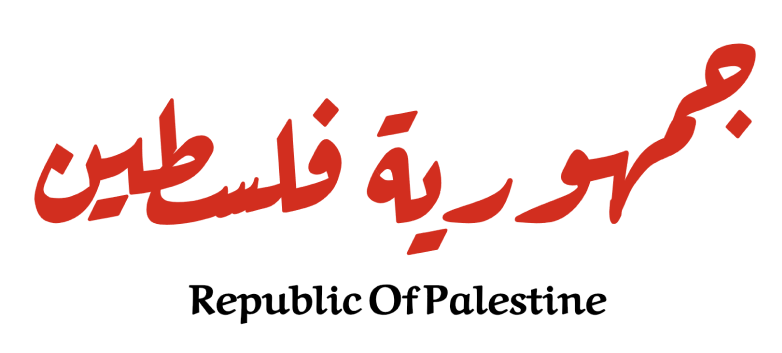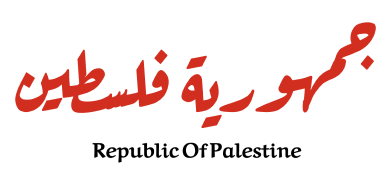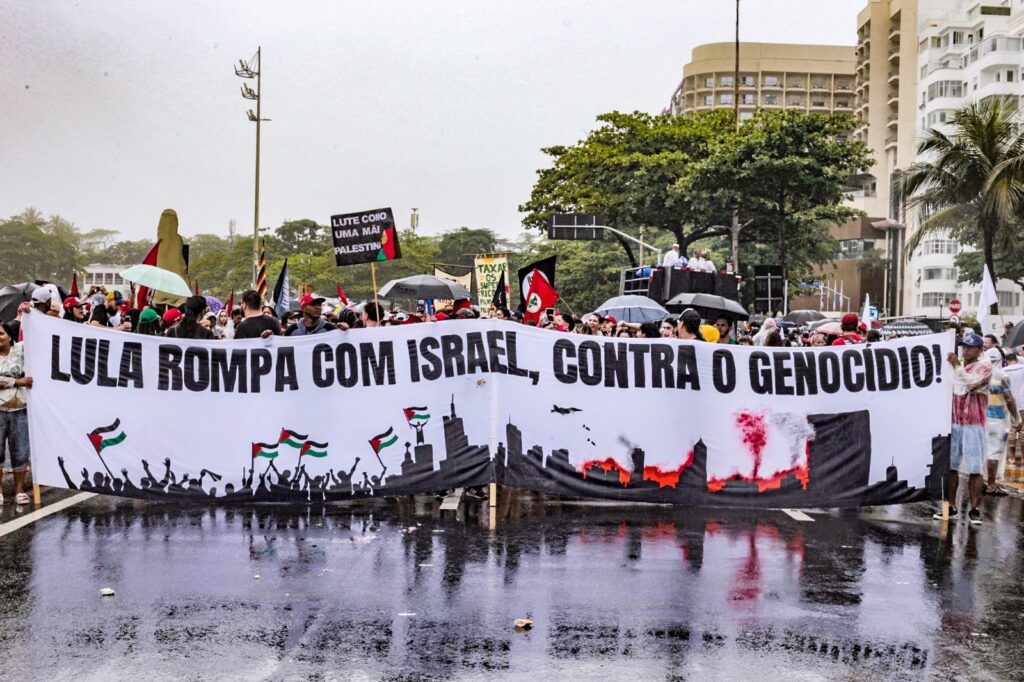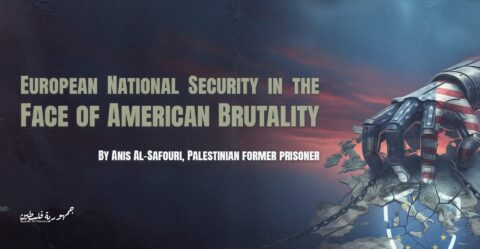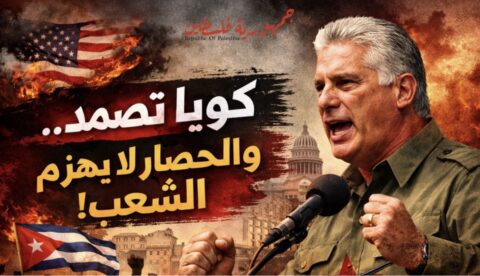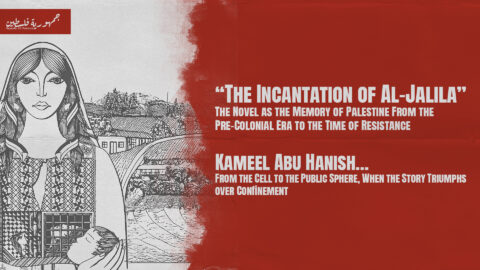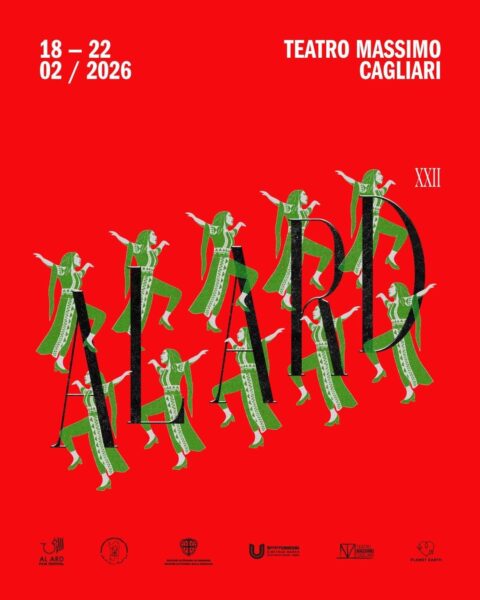Imperialism on trial
On the second day of the summit, the Landless Workers Movement dedicated the entire day to a People’s Court against imperialism. The crimes recognized by the court were the genocide of a people, a typical example being the massacre carried out by the Zionist entity and its allies against the Palestinian people; the stimulation of poverty, based on austerity policies and free trade agreements, referring to the agreement negotiated between Mercosur and the European Union; economic warfare and violation of the sovereignty and self-determination of the people, exemplified by the illegal US blockade of the Cuban people and harassment of the authorities in Haiti; and finally, the illegal embargo imposed by the United States against the Cuban people.
The first to speak was Palestinian activist and director of the Palestinian Institute for Public Democracy (PIPD), Rula Shahid, who moved the audience present at Fundição Progresso, “We are the Palestinian people who have suffered for 76 years from continuous colonial measures, manifested in the denial of the right of return of refugees, checkpoints, land confiscation, collective punishments by violent means, and military bombings.” The activist, who provided figures on atrocities committed by Israeli forces in the Palestinian territories, continued, “murders, forced displacement, home demolitions, and arrests.”
Finally, Judge Simona Nassif read a long sentence. “Given the jury’s sovereign decision, I consider the request valid and declare the wrong solutions offered by the capitalist system illegitimate and condemn imperialism for the crimes of genocide of the Palestinian people, the creation of poverty through free trade agreements, economic warfare and violations.” She called for the struggle for the sovereignty and self-determination of the peoples of Cuba and Haiti, and Brazil’s structural and environmental racism against black youth and the environment.
In an exclusive interview with Alida Guevara, she stated about the importance of Palestine’s presence at the People’s Court against Imperialism in Brazil: “It is very important for Palestine to be present here, and not only here but in all places and activities, so that the world and peoples know everything possible about the Palestinian cause. The issue lies in the fact that many people live and give their backs to the reality that we live, so we must break this silence and talk about the issue so that all peoples gather to support the cause.”
She also commented on Cuban President Miguel Diaz-Canel’s decision to grant Palestine 200 scholarships to study medicine in Cuba: “It is great to train doctors, but we must write and insist to the president that when the possibilities allow, we must send a community of Cuban doctors to help the Palestinian people and support them in everything they go through.”
Finally, as a closing message, Alida Guevara said: “I personally always get emotional when Palestine and its cause are mentioned, being called the ambassador for the return to Palestine, and yet I am very, very far away, and it hurts, and I try in every way to be as close as possible.”
On the other hand, in an interview with Cassia Bishara, Director of International Relations for the Landless Workers Organization in Brazil: “For us there is an importance of Palestine’s presence in the People’s Court because Palestine is the central issue not only for us as a movement but for the world because the Palestinian issue is a colonial issue and the oppression that Palestine is suffering from cannot be tolerated, Palestine is the central issue of the peoples and we in Latin America are still suffering from the effects of colonialism, and the Zionist occupation of ethnic cleansing is exactly what the European occupation did against Latin America’s native populations, knowing that the colonialism and Zionist occupation is ten times more severe than the colonialism of the past,” Bishara said.
Translated with DeepL.com (free version)
